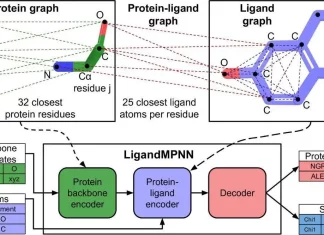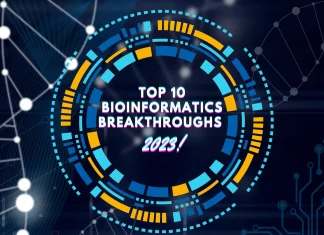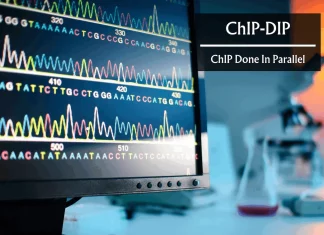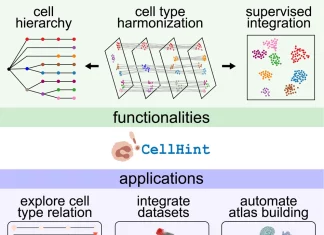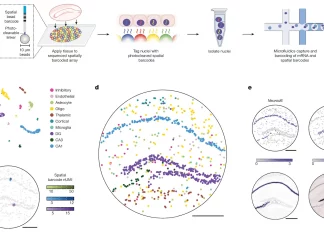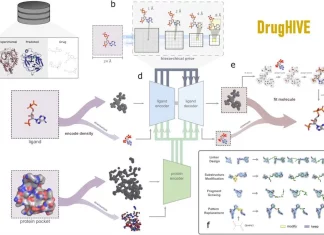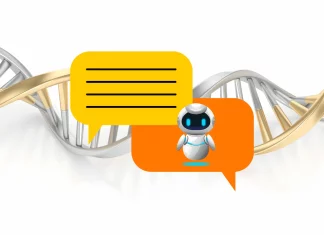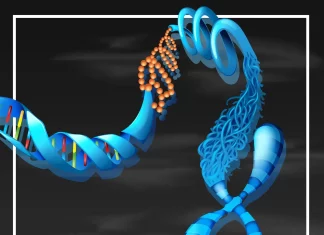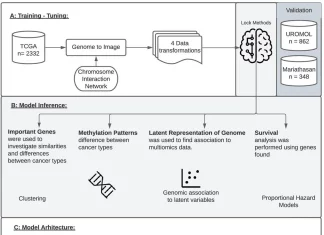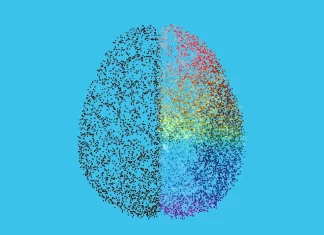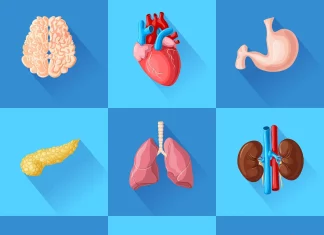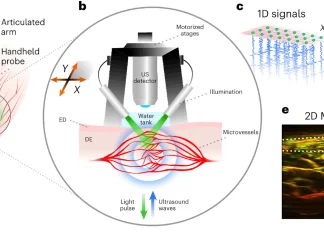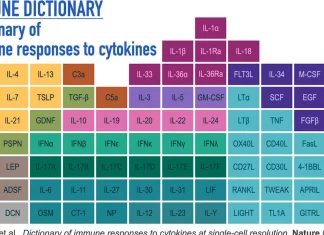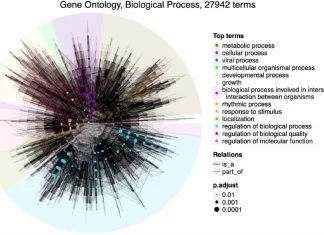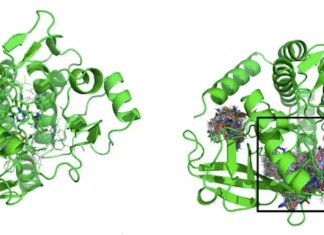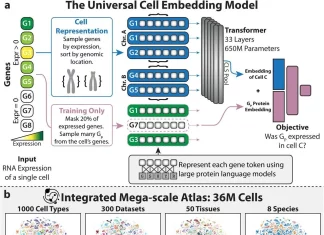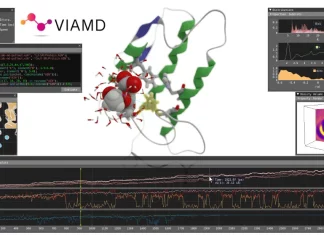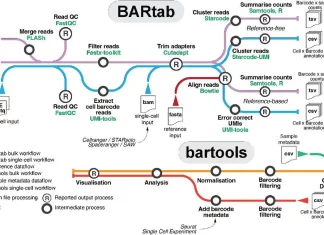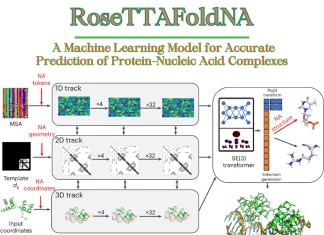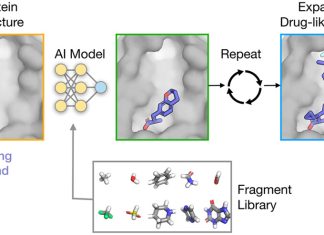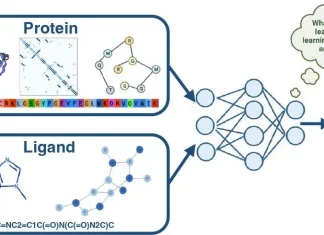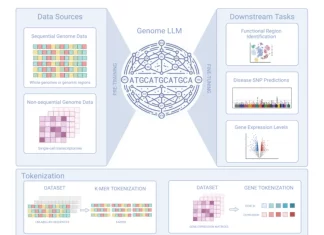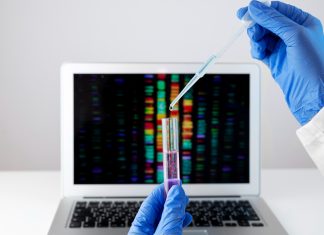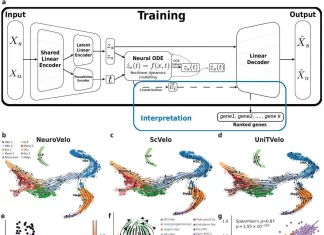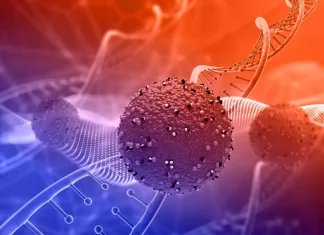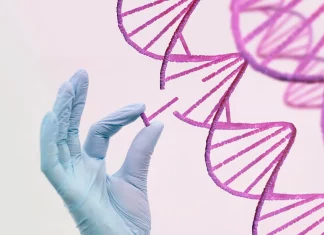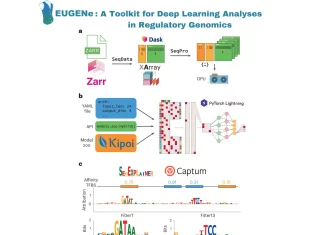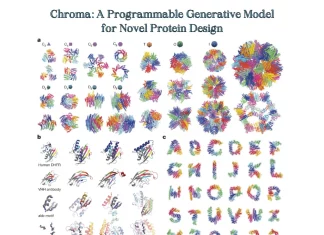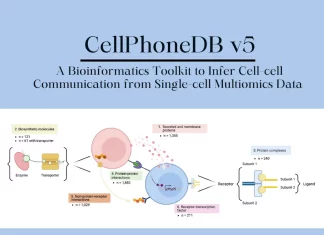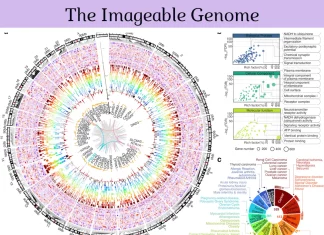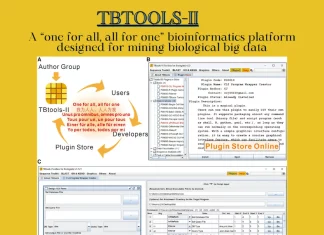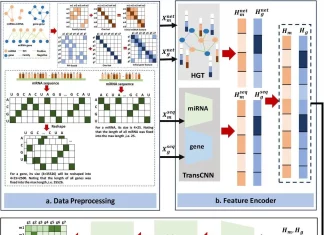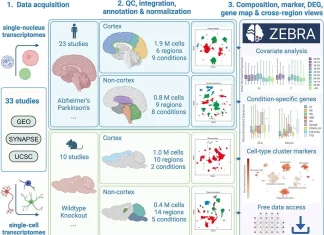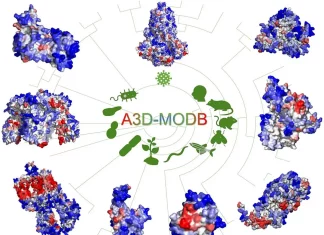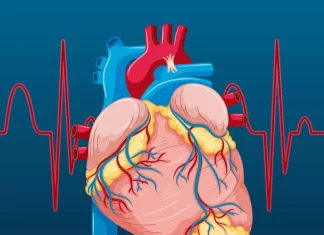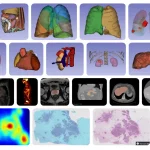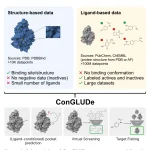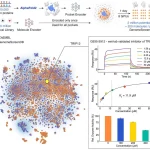Meet LigandMPNN: A Deep Learning Model Redefining Protein Design with Precision...
Protein design is an upcoming niche with important implications for many fields in the realms of healthcare, genetic engineering, and drug creation, among others....
Top 10 Bioinformatics Breakthroughs of 2023!
In 2023, bioinformatics discoveries have catalyzed immense progress across the life sciences landscape. These ground-breaking discoveries have provided insight into the complex workings of...
ChIP-DIP Multiplexing Method Maps Hundreds of Proteins to DNA Decoding Gene...
The dynamic localization of thousands of unique regulatory proteins to specific DNA sequences regulates the expression of genes. It has been a longstanding objective...
CellHint Revolutionizes Human Cell Atlas: Automatic Cell Type Harmonization Paves the...
Over the past few years, a large number of single-cell genomics datasets that profile a range of tissues in different stages of development have...
BROAD Scientists Introduce Slide-tags: A Novel Method for Mapping Cells in...
Despite huge leaps being made in the field of gene profiling in recent years, few of the tools developed for single-cell and single-nucleus sequencing...
Designing Drug-like Molecules with DrugHIVE: A Deep Hierarchical Variational Autoencoder for...
Due to the rapid advancements in AI, structure-based medication design is now widely used as one of the most important methods in early drug...
How Well Can LLMs Really Perform Bioinformatics Tasks? BioLLMBench Has Answers
Artificial intelligence is transforming industries across the board, and the life sciences are no exception. A new study led by researchers at Anthropic, an...
MIT Researchers Use AI to Design New Class of Antibiotic Candidates...
Since the discovery of penicillin, a large number of antibiotics have been developed and used all over the world as a means to cure...
CReATiNG Synthetic Chromosomes in Yeast Opens New Possibilities in Synthetic Biology
While chromosomal synthesis and cloning are expensive and time-consuming processes, CReATiNG (Cloning, Reprogramming, and Assembling Tiled Natural Genomic DNA), a method introduced by researchers...
Genetic Insights for a Longer Life: Exploring Actionable Genotype Testing
A new study from deCODE genetics on actionable genotypes shows the potential of genetics to guide healthcare and improve outcomes. The research, published in the New England...
Real-Time Cellular Analysis on Your Wrist: ‘Genomic Smartwatch’ May Offer Continuous...
A 'Genomic Smartwatch' technology initiative launched by the Seattle Hub for Synthetic Biology will provide instantaneous observations of individual cell transformations, potentially transforming the landscape of...
A GPT-driven Robot Chemist Designs, Plans, and Performs Complex Experiments –...
Scientists at Carnegie Mellon University have unveiled a breakthrough artificial intelligence system called Coscientist that can independently design and execute complex chemistry experiments at the touch...
Spatial Transcriptomics Unlocks Novel Insights into Cancer Biology: AI Analyzes Gene...
The introduction of NGS transformed the field of biology, allowing for greater insights into biological mechanisms through the gathering of rich, accessible data. However,...
New AI Model Predicts Life Outcomes from Health and Career Data
Artificial intelligence continues advancing into uncharted territory, now claiming the ability to peek into people's futures. Researchers from the Technical University of Denmark have...
Atomic AI’s ATOM-1: Leveraging Chemical Mapping Data to Optimize RNA Therapeutics
New avenues are being paved in the world of healthcare every day. One of the most promising new developments is the creation of RNA-based...
Google Unveils MedLM – New AI Models to Transform Healthcare
Google recently announced the launch of MedLM, a family of large language models specifically fine-tuned to revolutionize medicine and life sciences. MedLM brings the...
The Rising Potential of Deep Neural Networks in Mimicking Brain Responses...
One of the primary challenges contemporary neuroscience researchers face is building a successful and accurate computational model of the various sensory systems in the...
New AI Model ‘popEVE’ Accelerates Rare Disease Diagnosis by Predicting Most...
A newly developed AI model called popEVE shows promising results for accelerating the diagnosis of rare genetic disorders by predicting which mutations in a...
Unlocking the Mysteries of the Mammalian Brain: A Comprehensive Atlas Reveals...
Scientists from the Broad Institute have made a groundbreaking discovery in the field of neuroscience by mapping the locations of hundreds to thousands of...
Stanford Medicine Scientists Inch Closer to Predicting Which of Our Organs...
In a recently published study, Stanford Medicine researchers highlighted age-related problems in humans and showed how aging varies from person to person and between...
A New Era in Diabetes Assessment: Skin Scanner and AI Score...
A new non-invasive imaging technique called raster-scan optoacoustic mesoscopy (RSOM) shows promise for detecting diabetes progression and severity by visualizing microscopic changes in the...
Broad Institute Researchers Unveil a New “Dictionary” of Immune Responses to...
A research team led by Prof. Nir Hacohen from the Broad Institute of MIT and Harvard, Cambridge, designed the study Dictionary of Immune Responses...
Analyzing Bio-Ontologies Made Easy: A Deep Dive into simona R Package...
As modern biology embraces high-throughput genomics and multi-omics profiling, the torrents of data now routinely generated necessitate improved systems organizing information to enable meaningful...
Unleashing the Power of Recurrent Neural Networks for Orally Bioavailable Drug...
NovoMol is a novel de novo technique that increases the efficiency of clinical trial times by mass-generating therapeutic molecules with excellent oral bioavailability through...
Meet Multiple Protein Profiler: A New Tool for Analyzing Proteomic Datasets
Dalhousie University, Canada researchers have developed a new web-based tool called Multiple Protein Profiler (MPP) that can efficiently calculate 12 key physicochemical properties of...
French Startup Selling $1,000 DNA Cards Capable of Storing Messages in...
Biomemory, a French digital storage startup, recently unveiled encapsulated DNA storage devices the size of credit cards, holding personalized messages as brief proofs of...
Unlocking the Secrets of Life: Universal Cell Embeddings – A Revolutionary...
Universal Cell Embedding (UCE) is a foundation model proposed by a group of scientists from Stanford University. Using a corpus of cell atlas data...
Revolutionizing Molecular Dynamics Analysis with VIAMD: A Unified Approach to Visualization,...
Many different tools are needed for the standard molecular dynamics (MD) analysis workflow, which frequently leads to a lack of coordination and interaction between...
From Genes to Therapies: How Bioinformatics is Revolutionizing Translational Medicine
We live in an era of big data. Advancements in high-throughput sequencing and other omics technologies have led to exponential growth in biological data...
BARtab and Bartools: Revolutionizing Cellular Barcoding Analysis in Genomics Research
Researchers from the Peter MacCallum Cancer Centre, Australia, have introduced an integrated open-source toolset called BARtab and bartools to streamline the analysis of cellular barcoding experiments....
Decoding the Dance of Proteins and Nucleic Acids: Machine Learning Empowers...
Researchers at the University of Washington, USA, have developed a new AI system called RoseTTAFoldNA that can rapidly and accurately predict the 3D structures...
UK Biobank Releases Unprecedented Genomic Data Trove to Transform Global Health
In a monumental milestone, UK Biobank has unveiled open access to incredible whole genome sequencing data for its over half a million participants. This...
Transforming Fragment-based Drug Design: Stanford’s FRAME Employs Machine Learning to Expand...
Stanford University researchers developed FRAME (Fragment-Based Molecular Expansion), a machine learning framework that uses three-dimensional structures of interactions between proteins and ligands to facilitate...
Decoding the Protein-Ligand Enigma: A Deep Dive into Deep Learning Approaches...
Researchers from the University of Edinburgh, UK, explore the impact of ligand and protein encodings on binding affinities prediction for different data sets, a...
Genome LLMs: Revolutionizing Genomics with Transformer-based Large Language Models
Deep learning techniques have had a significant influence on genomics and the sequencing techniques employed in the field due to the exponential advancements in...
The Tail that Wiggles: A Reaction-Diffusion Model Unveils the Mechanism Behind...
The graceful, rhythmic beating of slender cellular appendages called flagella allows sperm cells and microorganisms like algae to swim. But how these waving motions...
Transforming Infection Diagnosis: Saliva-Based mRNA Biomarker for Accurate Detection
Since the COVID pandemic began, the world has been reminded of the poor reliability of elevated body temperature for detecting infections. Even when infected...
Meet NeuroVelo: A New Tool to Decode Cellular Dynamics from Single-cell...
A study conducted at the International School for Advanced Studies (SISSA) in Trieste, Italy, introduced NeuroVelo, a novel method tackling the challenge of reconstructing...
New Machine Learning Technique Predicts Cancer Patient Cure Rates More Accurately
As computing power has exponentially grown, machine learning (ML) techniques have gained immense popularity in healthcare - including predicting outcomes for patients with devastating...
UK Approves Revolutionary World-first Gene Editing Treatment for Blood Disorders
The UK has achieved a historic milestone by becoming the first country to authorize a revolutionary new treatment for two serious inherited blood conditions...
UCSD’s EUGENe: A New Deep Learning Toolkit to Decode the Regulatory...
Researchers at the University of California, San Diego, built EUGENe (elucidating the utility of genomic elements with neural nets) – an end-to-end Python toolkit...
Enlightening the Proteomic Space with Chroma: A Revolutionary Generative Model for...
Proteins are incredible molecules that carry out nearly every function necessary for life. However, their staggering complexity has made designing new proteins an immensely...
Unravel Cell-cell Communication with CellPhoneDB v5: A Cutting-edge Single-cell Multiomics Toolkit
We often underestimate the crucial role played by communications between cells to sustain living organisms. Flawless communication between cells is a necessity to maintain...
Unlocking the Secrets of Disease: The Imageable Genome and the Future...
Researchers at the University of Lucerne utilized molecular imaging to evaluate the expression of certain regions of the human genome. The imaging techniques are...
Demystifying Big Data with TBtools-II: A Versatile and Customisable All-in-One Platform...
TBtools, a toolkit used for data analysis and bioinformatics tasks, was released in 2020 and quickly found a large audience – thousands of researchers...
Meet MiRGraph: A Novel Deep Learning Algorithm to Predict miRNA-target Interactions
A team of researchers from McGill University and Hunan University developed MiRGraph, a multi-view feature-learning method based on transformers that have the ability to...
Navigating the Complex Transcriptomic Landscape of Neurodegeneration with ZEBRA
Neurodegenerative diseases like Alzheimer's and Parkinson's remain poorly understood despite intensive research. While sequencing studies have profiled diverse brain cell populations, integrating findings into...
Meet A3D-MODB: A New Database for Predicting Protein Aggregation in Model...
The Protein Folding and Computational Diseases Group at IBB-UAB, in collaboration with researchers from the University of Warsaw, developed a new database, A3D-MOBD (A3D...
Harnessing Artificial Intelligence to Decode Sudden Cardiac Death
Sudden cardiac death, the abrupt loss of heart function leading to mortality, accounts for up to 20% of passings globally. Despite being a major...
MIT’s iPGS: A New Inclusive Polygenic Scoring Model Revolutionizes Disease Risk...
Massachusetts Institute of Technology (MIT) computer scientists developed iPGS, a model that gives accurate polygenic score calculations for the genetic makeup of individuals belonging...

